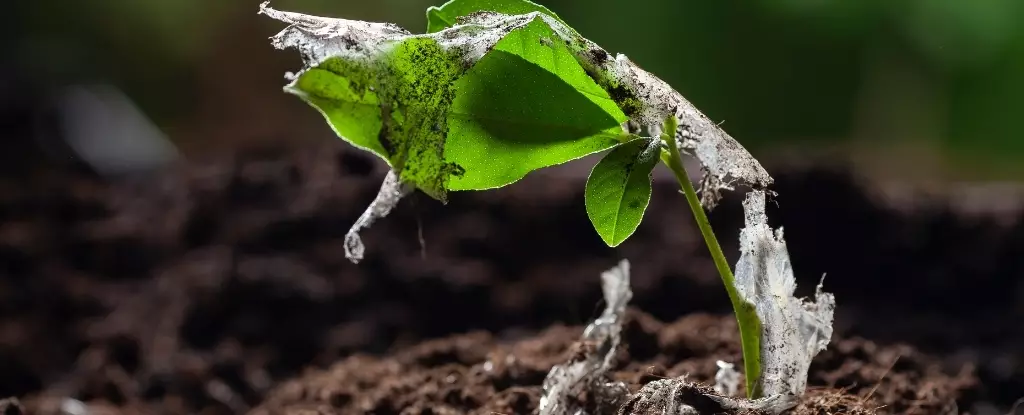Microplastics, those tiny fragments of plastic, are stealthily infiltrating our agricultural systems, bringing with them a cocktail of hazardous chemicals and pollutants. The research spearheaded by environmental biotechnologist Joseph Boctor and his team at Murdoch University serves as a distressing wake-up call. Their thorough review of nearly 200 scientific studies illustrates how these tiny particles not only settle in our soils but also make their way into the very food we consume—wheat, carrots, and even lettuce take on a new, unwelcome ingredient: microplastics.
This revelation is more than alarming; it embodies a systemic failure in current agricultural practices. As Europe and North America collectively accept hundreds of thousands of tonnes of microplastics into their farmlands each year, the implications for human health and environmental integrity become increasingly dire. It’s an unthinkable irony that while we strive for agricultural efficiency, we are simultaneously contaminating our soils with long-lasting pollutants that, over time, could redefine the very essence of what we deem ‘food.’
Plastic Mulching: A Double-Edged Sword
One of the significant culprits behind this grave pollution is plastic mulching, a technique originally adopted to enhance crop yield and improve water retention. While farmers bask in the benefits of improved efficiency, they often overlook the hidden costs of these plastic layers that now dominate agricultural landscapes. What once was a practice to promote sustainability has morphed into a leading source of microplastics infiltrating our food chain.
The multispectral benefits of plastic mulching, from suppressing weeds to optimizing moisture retention, may overshadow the risks, but we cannot afford to ignore the long-term effects on soil health. The studies conducted reveal that a staggering 22,500 tonnes of microplastics are introduced annually into soils within the UK alone through fertilizers and additives. This is not merely a scientific statistic; it is a harbinger of a larger ecological disaster waiting to manifest.
The Pathway to Contamination
The pathways through which microplastics enter plants should send shivers down the spine of any conscientious consumer. Whether absorbed through the roots or taken in through leaf pores, microplastics are now an intrinsic part of our food chain. Moreover, when these particles travel via water or air, they do not just contaminate; they alter the very fabric of plant biology and, by extension, human health.
Boctor’s concerns go beyond the mere presence of microplastics; they highlight an urgent need for transparency and rigorous research. The systemic opacity surrounding microplastics and their additives results in widespread ignorance about the potential threats these substances pose. As they settle into our soils—effectively transforming them into a plastic sink—are we as a society willing to gamble with the health of future generations?
Health Risks: An Unacceptable Gamble
The implications of this contamination extend into the human body, where microplastics could trigger an array of health crises. Emerging studies draw alarming connections between these plastic particles and reproductive issues, hormonal disruptions, and even severe neurological damage. The idea that microplastics could pass from mothers to babies through the placenta is more than just a technical detail; it underscores a moral failure in our regulatory systems.
Worse yet, the additives often found in plastics—such as phthalates and polybrominated diphenyl ethers (PBDEs)—are linked to severe health risks, including an increased chance of cancer and reproductive system toxicity. This knowledge should be a catalyst for change. Yet, we find ourselves at a crossroads, stuck in a complacent cycle where the perils of plastic overwhelm our better judgment.
The mounting evidence regarding microplastic contamination in food crops and the subsequent health risks loom large over our collective conscience. The time to act is now. We must advocate for stringent regulations on agricultural practices and encourage transparency in research. It is imperative that we break free from an agricultural system that prioritizes short-term gains over long-term health and ecological sustainability. Human health should not be a price we pay for agricultural efficiency; it must be the cornerstone of our food systems. If we fail to confront this creeping peril, we risk not only our health but the very integrity of our food supply and the future of our planet.


Leave a Reply